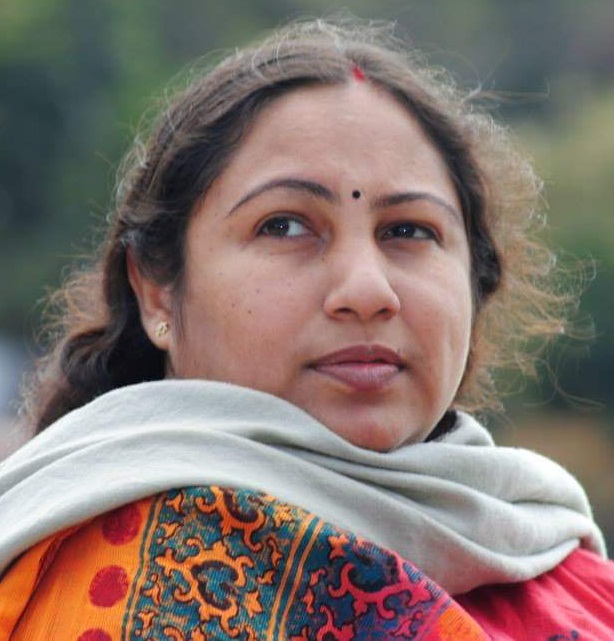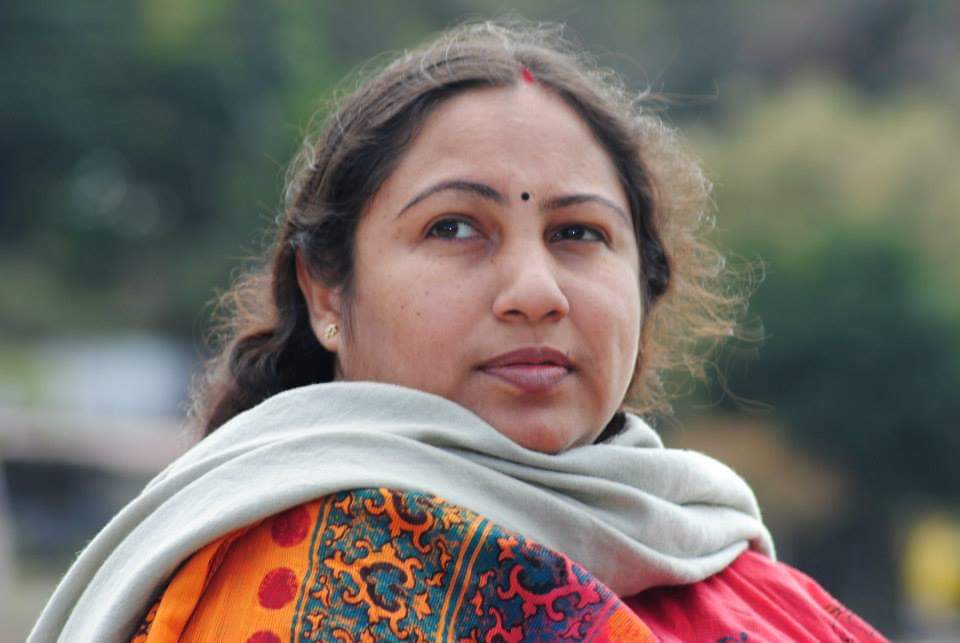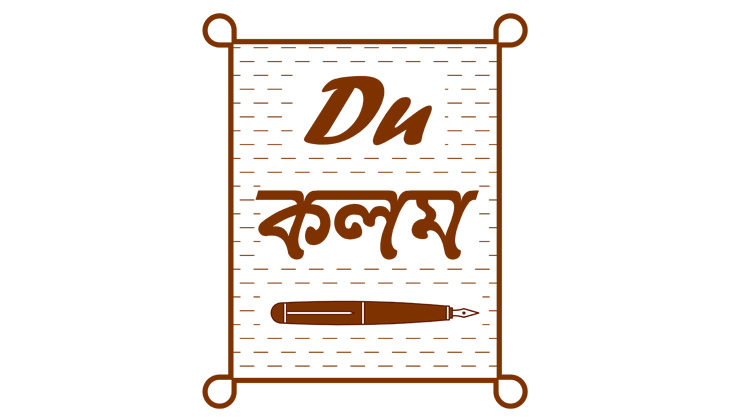 Sudeshna Chakravarty
Sudeshna Chakravarty
Kazi Nazrul Isam was a renowned poet, writer and musician and is the national poet of Bangladesh. He was born on May 25, 1899 in Churulia Village, present-day West Bengal. His writings have explored a number of themes such as freedom, humanity, love, revolution, devotion.
Born in a Bengali Muslim family, he received religious education in a madrasa and studied Quran, Hadith, Islamic philosophy and theology and later on also worked as a muezzin at a local mosque as a young man.
Perhaps because of his very quiet and introspective nature, he was often known as Dukhu Mian as a child. As he grew up, he was attracted to folk theatre and joined a travelling theatrical group run by his uncle Fazl Karim. Before long, he learnt to act, wrote songs and poems for the plays. He also studied Bengali and Sanskrit literature and Hindu scriptures Puranas. To pursue formal education he left the troupe in the year 1910 and enrolled at Searsolle High School, Raniganj. He later transferred to Mathrun English High School and studied under headmaster and poet Kumudranjan Mallik. Nazrul studied up to grade 10 but did not appear for his matriculation examination. He joined the British army in the year 1917 due to his passion for adventure and politics at that time. It is when he was in the army that he read extensively Rabindranath Tagore’s works and the works of Saratchandra Chattaopadhyay and also those of Persian poets Rumi, Omar Khayyam and Hafez. He did not participate in active war and left the British Army in 1920. After leaving the army he joined the Bangiya Mussalman Sahitya Samiti and began writing. His first collection of poems Bodhan, Shat-il-Arab, Kheya-parer Tarani were all critically acclaimed works.
He was engaged to be married to a rich Muslim lady in 1921 in Daulatpur, Comilla but walked away from the marriage on the day of his wedding when his future in-laws expected him to continue living in his in-laws’ home after marriage.
Nazrul started a biweekly magazine, Dhumketu critical of British rule. As he became more critical of the British rule through his writings and poems, he was arrested by the British in 1923. His writings were often distributed in secret to serve as inspiration against the British rule and atrocities. It was during his imprisonment that he wrote a number of poems and songs which the British government banned.
In 1924 he married Promila Devi whom he had met in Comilla. She was from the Brahmo Samaj. As a result of his marriage he received a severe backlash from the Muslim community. In 1926, he settled in Krishnanagar with his wife and young son Bulbul.
His literary and life of revolution is known to most but lesser known is that he had another side to him, the mystical side. He courted both fame and abuse in his life and his literary life led him to fame. On the other hand he suffered the loss of his young son Bulbul to smallpox. “This death” in his own words “came to me as a director of spirituality”. At that time, all he could think of was his son’s untimely death and nothing could console him. That is when Sri Barada Charan Majumdar lit a lamp in his life to dispense all darkness and then there was no turning back for Nazrul. Nazrul met his Guru in a wedding at Nimtita village where, in his own words “In that venue of the wedding ceremony my consort soul greeted Him as a bride would court the companion of her whole life. I have no hesitation in saying that I have known myself following only his path. I have realized my entity (self) of deep joyfulness. I reached truth from untruthfulness, enlightenment from darkness, immortality from death. He is the root of manifestation of my power in poetry, music, and spiritual life and I am the receptacle of his spiritual power”.
Thus, his Guru was his beacon of light and from then on Nazrul unknown to all his mystical side too blossomed and his poetry became calmer and his poetry reached new depths. As per his Guru’s instructions, his Ishta was Maa Kali. His songs were hymns to Shiva (he considered his Guru to be Shiva), Kaali, Krishna. As per a famous singer Dhirendra Chandra Mitra of Nazrul Geeti, the following song composed in Raag Ahir Bhairav was dedicated to his Guru Sri Barada Charan Majumdar.
Aruna Kanti ke go Yogi Bhikhari
Nirabe hese daraile eshe
Prokharo teja taba neharite nari
In the year 1940 on November 18th, his Guru left his earthly bondage for eternal life but not before meeting his beloved Kazi Bhaya as he called Nazrul lovingly. On November 16, 1940 he reached his Guru’s house in Lalgola. As he saw his Beloved’s passing away was imminent, he sat in deep meditation throughout the night and then on November 17, 1940 in the morning too he sat in deep prayer and then approached his Beloved. He told his Gurudev that he had prayed to Maa Kaali for his Guru’s life and She was willing to grant him another 8 years of life and all that he had to do was ask for it but his Guru was adamant. He said “Kazi Bhaya be strong. I have never shown any miserliness in imparting my teachings to you so why are you becoming weak. I want you to sing my favorite song”. Thus bowing to his teacher’s wishes, Nazrul sang the song Shashane Jagiche Shyama. His Guru’s sons asked him to stay the night but Nazrul had got to know in his meditation that his Guru was not going to live beyond 3:00 AM and left as he could not bear to see his Beloved slip away for forever.
His Guru breathed his last at 3.00 AM indeed.
Such was the deep love that they shared and Nazrul was totally dedicated to his teacher and Beloved. There were many more stars in Bengal’s spiritual skies during those days Sri Dilip Kumar Roy, Kalipada Guha Roy all of whom were well known to Nazrul. Amongst them Kalipada Guha Roy also known as a Gupta Yogi guided Nazrul during some of his darkest days. He was known as Kalida to his closest friends.
On June 30, 1962 he lost his beloved wife and spiritual partner Promila. His health too had deteriorated and he was finally diagnosed as having Pick’s disease. He stopped working due to his deteriorating health. In 1972 he lost his youngest son Kazi Aniruddha, a guitarist. Nazrul succumbed to his longstanding ailments on August 29, 1976 and in accordance with his wish he was buried beside a mosque on the campus of the University of Dhaka. People turned out in tens of thousands to attend his funeral. Bangladesh observed two days of national mourning and the parliament of India observed a minute of silence in his honour. We lost another of our great souls forever.

Sudeshna Chakravarty
is a practising micro-biologist and is an avid reader.


Wonderful post ,got enriched. Thanks a lot.
Sujay Banerjee